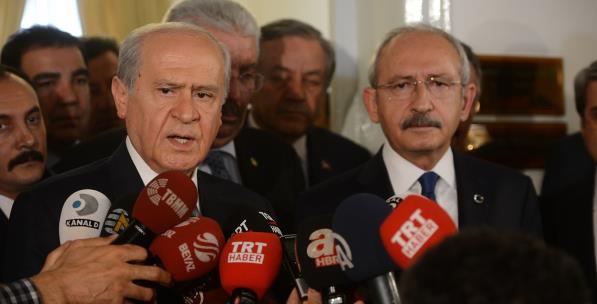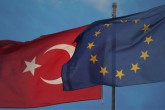Many incidents we have come across on the eve of presidential elections bring government-opposition relations to the agenda. The Gezi protests have a special place in that matter since it is regarded as a turning point where the government started to be afraid of the opposition. We are now sure about that: the most controversial party in Turkish politics so far has undoubtedly been the Justice and Development Party (AK Party). Each aspect of the party is heavily criticized. From its political identity to its implementations, each step it takes is a matter of debate. Discussing the AK Party means discussing the future of Turkey. So, it is inevitable and useful. The main problem is that the opposition is being dragged into the whirlpool of negativities. It can be said that the ruling party is making use of this situation in terms of current political conditions.
The main target of the opponents is to end this government. Its main reason is the uneasiness felt by the transformation within the last 12 years. In democracies, replacing the ruling party is a legitimate goal. However, the two levels of opposition against the AK Party are being confused. The first level is the feeling of discontent of those who desire to get rid of the party. Of course, elections serve this aim, and it is the duty of the opposition parties. And its methods lead us to the second level: Criticizing specific policies such as education and the Alevi issue and coming up with alternative suggestions. Reviewing and questioning policies is a level that can improve Turkey’s democracy. It could even prompt reactions and expectations from pro-government groups.
However, we learned a lesson when the Gezi protests derailed from their track on the third day. The opposition’s expression of anger through street protests prevented its being constructive. So, as Halil Berktay says, the opposition has turned into an “overthrowing opposition.” The phenomenon of the overthrowing opposition, in which White Turks also try to include Kurdish groups, has gained strength. Also, anti-Erdoğanism is being instrumentalized and functions as the emotional ground of this group. This vicious circle is completed when the ruling party sees its opponents as a problem of public order. The greatest harm of this dilemma is that the country is deprived of the contributions a constructive opposition may present, and real and sharp criticisms against the government are being lost in the chaos of streets.
The tension of presidential elections shows the dilemmas of both the opposition and the government. The AK Party put itself in a different place with a claim of introducing new policies when it was first founded. The AK Party has regarded the dichotomies in Turkey, such as religious-secular, Turkish-Kurdish, and Sunni-Alevi, as enemies of liberty. However, politics is a world of possibilities, not a world of desires. So, the AK Party has had to manage the tensions since 2002.
First, its Islamist past was questioned, and the demands of the grassroots were expected to be delayed. The party has had to face tensions created by secularist actors. The EU process acted as a catalyst for transforming Turkey until 2005. However, the tension reached its peak in the presidential elections in 2007, and the closure case of the party in 2008. The AK Party could manage these tensions by resorting to public votes when politics was blocked.
The AK Party, which became more powerful after the 2007 elections, the 2010 referendum and the 2011 elections, changed aspects of civilian-army relations thanks to this support and could initiate the resolution process of the Kurdish issue. With the Gezi protests and the Dec. 17 operation, the AK Party has entered a new period with regard to the tensions it faces.
In all elections held in an atmosphere of tension and polarization, the AK Party could receive strong support from voters. However, the opposition’s anger and criticisms regarding the party’s authoritarianism is getting sharper; and the international image of Turk
In this article
- Domestic Policy
- Opinion
- 2002
- 2005
- 2007
- 2008
- 2010
- 2011
- Alevi Community | Alawite Community
- Anti-Erdoğanizm
- December 17-25 2013 Judicial Coup Attempt
- Elections
- European Union (EU)
- Global Actors | Local Actors
- Islam
- Istanbul
- Kurdish Community
- Kurdish Question
- May 28-August 20 2013 The Gezi Park Protests
- Opposition
- Process of the Kurdish Issue
- Recep Tayyip Erdoğan
- Sunni
- taksim
- The President of the Republic of Türkiye
- Turkish President
- Türkiye's Justice and Development Party | AK Party (AK Parti)
- United States (US)



